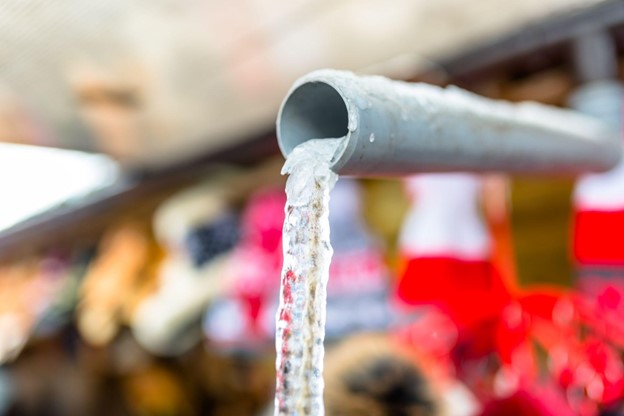Roof plumbing is a specialised sector within the vast expanse of the plumbing industry – an area that often gets overshadowed by other more visually dominant aspects of construction. However, roof plumbing, primarily concerned with the proper management of water in a building, is undeniably vital. The unsung professionals operating in this sphere play crucial roles, often unobserved, quietly making significant contributions to the longevity and safety of our dwellings. This article aims to shed light on these tirelessly working experts and debunk myths revolving around their roles and responsibilities in preserving and enhancing everyday living conditions.
What is Roof Plumbing?
Roof plumbing refers to the task of effectively managing the collection and disposal of rainwater, focusing on careful funneling methods that prevent water from seeping into structures, causing damage and degradation. While the term ‘plumbing’ instantly triggers thoughts of water supply, toilets, faucets, and everything related; ‘roof plumbing’ narrows down the field to something more field-specific, dealing with rooftops, gutters, and downpipes. Over the years, this profession has evolved, incorporating new technologies and materials to cope with changing architectural designs and weather patterns.
More Than Just Gutters: The Extensive Duties of a Roof Plumber
One of the primary responsibilities of a roof plumber revolves around gutter installation. This task, while seeming straightforward, requires in-depth knowledge of material resilience, angles, fixtures, and an understanding of the area’s weather conditions. By properly installing and maintaining gutters, roof plumbers ensure unobstructed water flow, reducing the risk of stagnation and accompanying problems like mould and structural weakness.
However, the scope of roof plumbing goes well beyond just gutters. This profession encompasses multiple areas like roof installation, repair and maintenance, installation of rain harvesting systems, and even tasks associated with stormwater management. Implementing rainwater harvesting systems in buildings, for instance, not only aids effective water management but also opens avenues for sustainable living.
Taking into account the complexity and precision involved, it becomes evident that roof plumbers have a significant role in maintaining the structural integrity of the building. Their meticulous operation creates a protective layer over your building, shielding you from potential disasters caused by inadequate water-draining systems.
The Essential Role of Roof Plumbers in Building Safety
The essential role of roof plumbers in ensuring building safety stretches to two major compartments – establishing foolproof water drainage systems and preventing water damage. If rainwater on the roof isn’t handled appropriately, it can pave the way for disastrous results, including structural instability and deterioration. By installing properly designed and adequately maintained gutters, roof drainage systems, and rainwater harvesting setups, roof plumbers are able to prevent potential water damage.
Considering the realm of safety, every construction project undertaken necessitates strict adherence to building codes and regulations. In this context, the role of roof plumbers extends to familiarising themselves with local building requirements and regulations involved in roof and gutter installation. This conscious adherence helps prevent breaches that may lead to possible legal ramifications or breaches of insurance policies.
Why a Certified Roof Plumber Is Essential for Your Building Project
The construction of any building is a significant investment, both in terms of time and resources. A key player in ensuring lasting quality and absolute peace of mind in your investment is a certified roof plumber. These experienced professionals have undergone rigorous training programs, earning certifications that testify to their skills and competence in the essential work they do.
Opting for certified roof plumbers promises to provide a service level that upholds defined professional standards and abides by the code of conduct construing their work ethic. Emphasising certified professionals’ importance, uncertified or unqualified individuals’ quick fixes can turn costly in the long run, causing significant financial and structural repercussions.
The Future of Roof Plumbing: New Technologies and Materials
While the prominence of certification and previous work experience holds steadfast, the craft of roof plumbing has its eyes cast toward the future. This industry is quick to embrace technological advancements, allowing roof plumbers to work more efficiently, accurately, and safely. The use of new, more durable, and sustainable materials further accentuates the next step in this industry’s evolution. As such, hiring a roof plumber who is well-informed and adaptable becomes increasingly essential.
Conclusion
From providing a sheltered abode to keeping it safe and ensuring sustainability, roof plumbers do it all. Trust your roof’s integrity to experienced plumbers and ensure lasting quality. These professionals’ indispensable roles stem from the gaps they fill in building safety, and structural integrity, and driving sustainable practices through their well-honed skills and experience. In the ever-evolving world of technology, it becomes increasingly important to trust such professionals who display a blend of solid craftsmanship and a readiness to adapt to the latest advancements.
Through an in-depth understanding of this intricate profession, one can appreciate the pivotal role roof plumbers play in society. Expanding public awareness about these tireless professionals and their contributions lies at the heart of appreciating this specialised craft.

